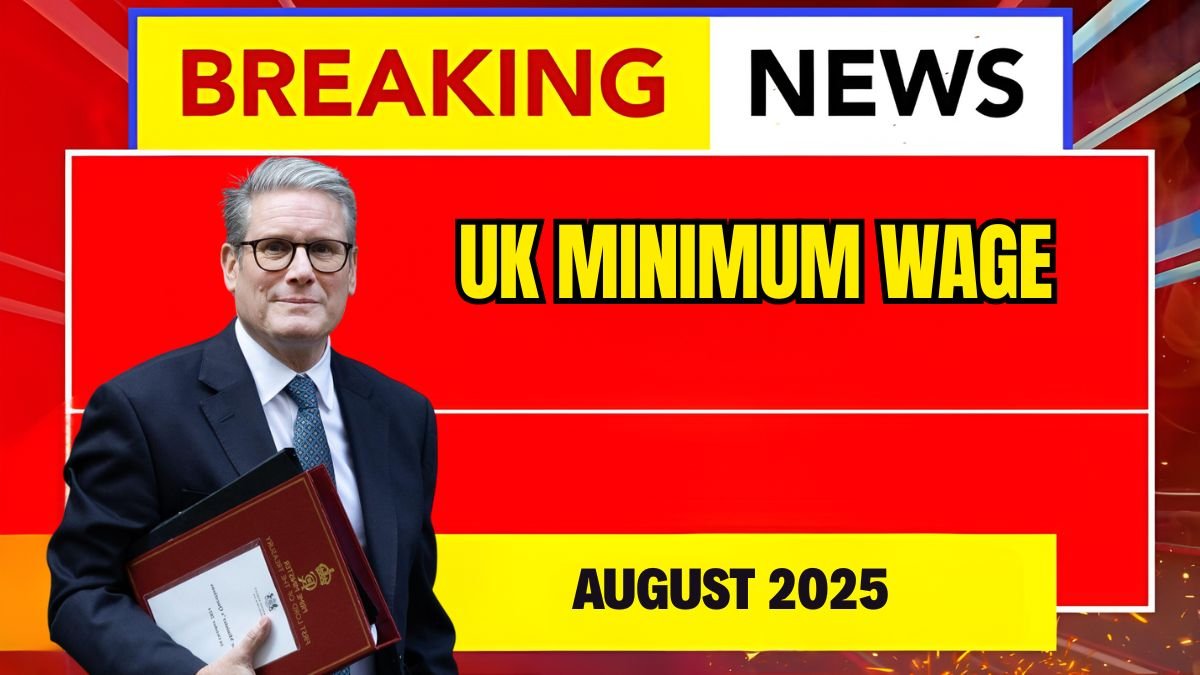Introduction: If you live or work in the United Kingdom, the new minimum wage rates that will come into effect from August 2025 are very important for you. The UK government has revised the minimum wage Payment rates by age from August 2025, which will make a difference to the income of millions of workers. In this article, we will explain in detail, in completely human-centric language, what the new rates are, who will get how much salary, and how this change can affect your life.
What is the minimum wage?
The minimum wage is the legally fixed lowest rate that is paid to an employee for an hour of work. In the UK, this salary varies depending on age and type of job. Every year the government reviews this rate and changes it based on inflation, cost of living and labor market conditions.
Types of Minimum Wages in UK
The UK has mainly four types of minimum wage rates:
- National Living Wage: This is for people who are 21 years of age or older.
- National Minimum Wage: This is for employees who are between 16 and 20 years of age.
- Apprentice Rate: This is for young people who are in an apprenticeship or traineeship program.
- Accommodation Offset: This is for employees for whom the employer provides accommodation.
New minimum wage rates by age from August 2025
As per the new update, the following wage rates will be applicable from 1 August 2025:
| Age Group | New Hourly Wage (August 2025) |
|---|---|
| 21 years and over | £11.54 |
| 18 to 20 years | £8.60 |
| 16 to 17 years | £6.75 |
| Apprentice | £5.28 |
It is legally required for every employer to apply these rates. If an employer pays less than these rates, he violates the law and action can be taken against him.
Impact of this change on workers
Relief for youth: This time special attention has been given to the youth in the minimum wage rates. The hourly wage rate for employees aged 18 to 20 has increased to £8.60, which is 6% more than last year. This will provide financial relief to students, part-time workers and youth.

Respectable increase for adults: National Living Wage is now raised to 11.54 per hour among the workers of 21 years and older age. The rise will not only contribute to combating inflation, but it will also enhance the lifestyle of workers.
Reco gnition of apprentices: Raising the apprentice rate to £5.28 is a sign of the government encouraging skill development. This will further motivate the youth taking up apprenticeship.
Is your employer following the new wage laws?
If you are an employee and suspect that you are not getting the correct minimum wage, you can complain to HMRC (Her Majesty’s Revenue and Customs). The UK has strict laws to protect employee rights and if an employer pays less than the minimum wage, he may have to pay a heavy fine.
You can also get free advice from Acas (Advisory, Conciliation and Arbitration Service). This organization provides labor related advice to both employees and employers.
Why is it important for employers?
The government announces minimum wage rates every year so that workers are not exploited and can live a respectable life. It is important for employers to not only follow these rates but also pay the correct salary on time. This keeps the employees satisfied and also increases efficiency.
Relation between inflation and salary increase
During 2024 and 2025, the inflation rate in the UK saw a lot of fluctuations. There was a huge increase in food items, rent and energy bills. Due to this, the government has made a major revision in the minimum wage rates this year so that the working class can cope with inflation.
What can happen in the future?
Every year in October or April, the government again reviews the minimum wage rates. Experts believe that if inflation remains the same, then there may be a further increase in 2026. Also, some organizations and trade unions are also demanding that the National Living Wage be increased to £12.50 or more, so that every employee can get a “real living wage”.
Are you satisfied with your salary?
Every employee should ask this question to himself. If you work full-time and still your basic needs are not being met, then it is time to know your rights and take appropriate action. The purpose of the minimum wage is to provide minimum financial security to every employee.
Conclusion:
The new minimum wage rates introduced by the UK government from August 2025 are a positive step. They are not just economic statistics, but a means to improve the lives of millions of workers. Whether you are a youth, an apprentice or an adult worker – your hard work is now valued properly This change will not only provide financial security to employees, but will also help in stabilizing the country’s economy as a whole.
FAQs
Q1. What is the UK minimum wage from August 2025?
A. From August 2025, the National Living Wage for workers aged 21 and over is £11.54 per hour. Other age-based rates have also been updated.
Q2. Who sets the UK minimum wage rates?
A. The UK government sets minimum wage rates based on recommendations from the Low Pay Commission (LPC).
Q3. When did the new wage rates come into effect?
A. The updated minimum wage rates came into effect on 1st August 2025.
Q4. Who is entitled to receive the National Minimum Wage or Living Wage?
A. All workers in the UK aged 16 and above are entitled to the National Minimum Wage, based on their age. Those aged 21 and over are entitled to the National Living Wage.
Q5. Are apprentices paid less than other workers?
A. Yes. Apprentices under 19 or in their first year of an apprenticeship are entitled to the apprentice rate, which is £5.28/hour from August 2025.


